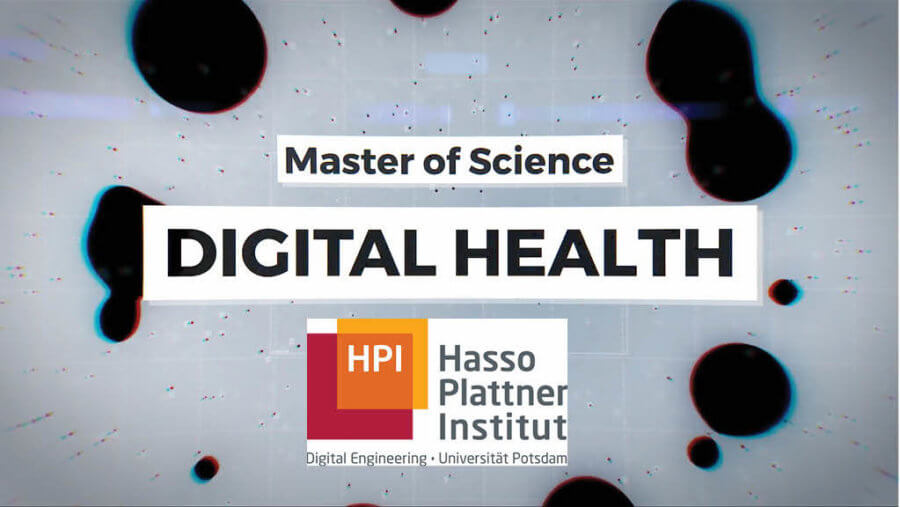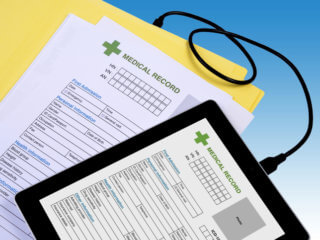Master’s program in digital health
The healthcare industry is experiencing drastic transformation with the help of digital health technologies and products. The use of digital solutions is going to increase over time and hence, this has motivated the Hasso Plattner Institute to launch a master’s program in ‘Digital Health’. The master’s degree program in Digital Health is a 4-semester program at the faculty of Science – Digital Engineering, jointly founded by the HPI and the University of Potsdam.
The degree helps the applicants to learn about the skills to analyze, implement and design complex and secure IT solutions and infrastructure in the healthcare segment. The degree program also emphasis on the innovation method of design thinking including many other entrepreneur topics. The program is meant for dealing with ethical and legal issues of relevance to the healthcare systems.
The program is divided into five module groups for the aspiring students.
- Digital Health: Analysis and development of digital health applications.
- Two Specialized Areas: Modules for concepts, techniques, tools and methods, Modules for specializations.
- Soft skills: Design thinking backtrack, design thinking advance track, communication and management competencies.
- Digital Health Project Lab.
- Master’s thesis.
This master’s degree course in digital health will help the students in acquiring a great knowledge and skills in the field of IT, computer science and digital solutions.
Additionally, the applicants will learn about the software architecture skills for Digital Health including the ethics and law. The students must note the application deadline for both the summer and winter semester.
For summer semester the application deadline was 15th January and for winter semester the deadline is 15th July. The eligibility criteria for admission in master’s program in Digital Health is a bachelor’s degree in science (any specialization subject).
The Admission Committee of the Hasso Plattner Institute determines the eligibility of the application. The admission cycle is revised after each semester and for the top best students, the first cycle offers 30 places for the students in Digital Health. After pursuing the degree in Digital Health, there are many great future opportunities for the students to start with. The degree helps in acquiring a qualified expert level position in the International Healthcare Organisations as well as the R&D department of digital medical devices.
Moreover, the university is offering future-proof career opportunities to the students pursuing a master’s degree in Digital Health at their institute.
Other global universities offering master’s program in digital health
Apart from Hasso Plattner, there are many other universities in the world offering a master’s degree in Digital Health. The Savonia University of Applied Sciences, The University of Strathclyde, The University College Cork and The University of Warwick are some of the top universities offering Masters of Science in Digital Health.
The master’s program in these universities chiefly focuses on the advancement of digital health and medical devices in the healthcare sector. These universities are trying to educate and excel their students in the leadership and digital technology, integration of mobile and IoT applications, security and ethical approaches in digital healthcare and managing digitalized health services.
Digital health is one of the advanced growing sectors in the world today and hence, the different universities across the globe are offering part-time as well as a full-time course for upgrading the skills in digital healthcare and technology solutions.
What does this mean for the healthcare sector?
With the different universities offering the master’s degree program in Digital Health, the potential of the Digital Health is increased and expanded. These universities are focusing on the enhancement of the healthcare sector and are helping the research and development segment with great aid. With the increased number of universities, there are increased partnerships and clinical research for the next generation of physicians and digital healthcare pioneers.
These courses are going to give positive results for all the stakeholders including patients, doctors, hospitals, insurers, investors, and regulators as standardized courses in universities will open doors for more formal research in the healthcare sector.
There are possibilities for inventing new digital tools with the help of clinic and educational research in the field. This will definitely result in improved patient care and hospital regulations.
All these innovations point towards the newer level of development in the healthcare segment. These days digital health has become a powerful means for ‘marketization’ of the healthcare and the startups are making things transparent for attracting more customers. With more numbers of universities coming up with the academic career in digital health, the world is transforming into a better place for the healthcare organizations with more knowledge and awareness amongst the consumers.
This has ultimately resulted in increasing digital health literacy around the world by leaving no dilemma for the innovators in the healthcare industry. Digital health literacy refers to an ability to seek, find, apply and implement the knowledge obtained from the electric resources for resolving a health issue.
With the help of digital health education and programs around the world, the need for traditional healthcare ventures will be replaced by the digital health experts.
These graduates and experts will help the world with reduced cost treatments, reduction in labour costs, automatic business processes and dedicated digitization business. In short, health institutions, courses and universities will play a key role in facilitating trustworthy health information and guiding the future of the digital health market.
Image credit: www.hpi.de

















